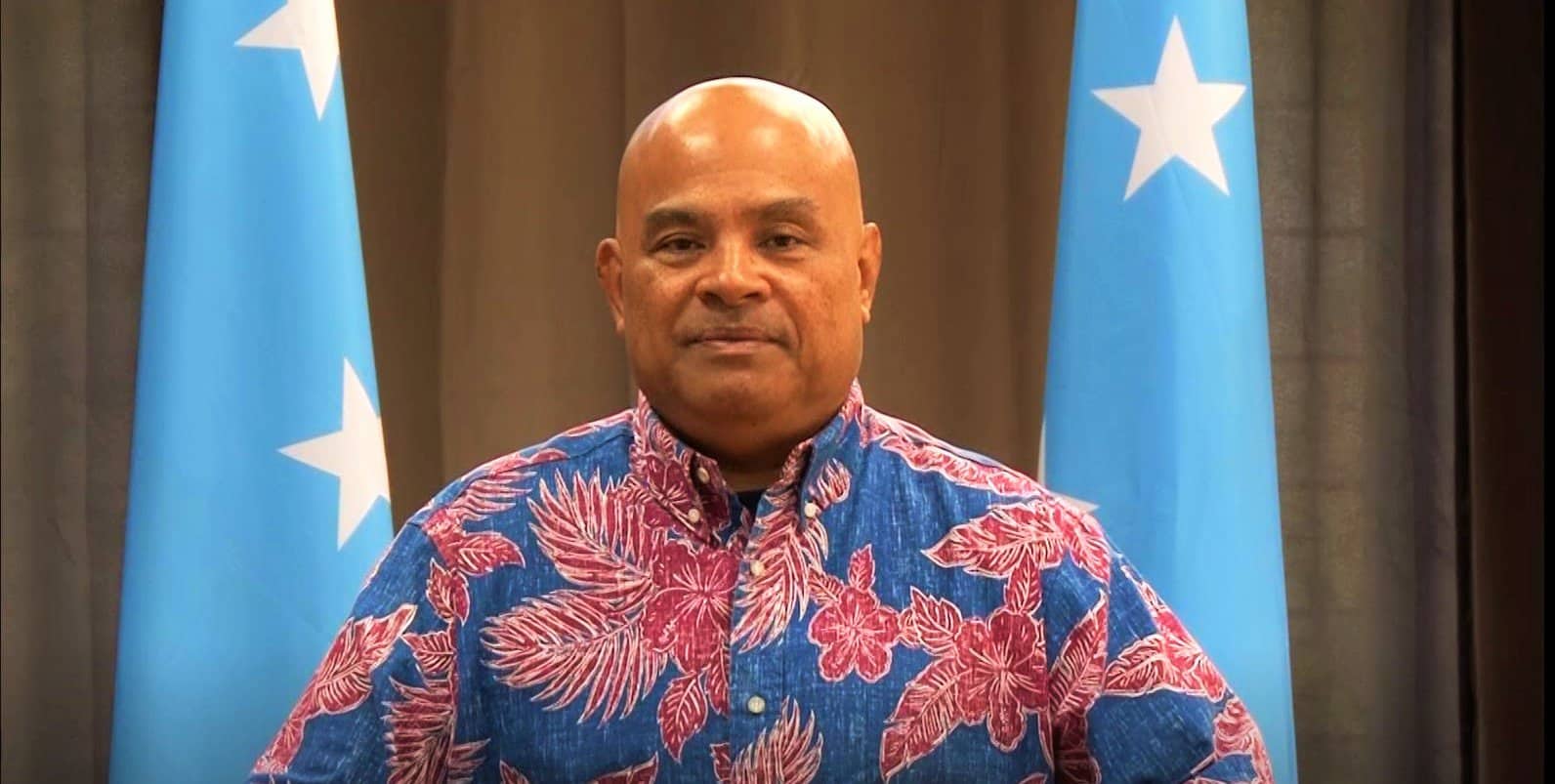Seeking to retain the status quo on the Federated States Micronesia’s (FSM) diplomatic relations with China, the FSM Congress weighed in on a resolution urging outgoing President David Panuelo to suspend his plan to switch ties to Taiwan.
“Our nation’s diplomatic relations with the People’s Republic of China is an example of hard work, consultation and study by our Department of Foreign Affairs, in conjunction with consultation with a broad segment of our national and state government leadership, and it has produced a diplomatic relationship with the People’s Republic of China that has significantly benefited the Federated States of Micronesia,” states the resolution introduced by Senator Ferny Perman.
In a letter to the FSM Congress last month, Panuelo disclosed the initiatives he has taken to push ahead with a diplomatic realignment in favour of Taiwan, saying the nation “will be much better off without China.”
While the resolution is pending before the senators, Panuelo is asking the FSM Congress to assign security detail for him, noting that his exposes on China’s surreptitious dealings in the FSM put his life in danger.
The president proposed a yet-to-be-sponsored bill authorising the deployment of a security team to “a sitting and any former president and vice president.”
“I feel that my personal security is severely at heightened risk; and these risks will follow me, unfortunately, even after my tenure as president,” Panuelo said in an 03 April letter to Speaker Wesley Simina.
“You will appreciate the sensitivity of the official matters that any FSM president must act and take decisive action. Many of the official actions of the president affect our nation and people in a much more impactful way,” states the letter that accompanied the bill transmitted to the FSM Congress.
In a 10 March letter to the FSM Congress following the national elections which he lost, Panuelo disclosed he had met with Taiwan Foreign Minister Joseph Wu in February to negotiate a US$50 million assistance to offset the FSM’s losses should the nation eventually sever ties with Beijing.
As a result of the meeting, he said Taiwan has offered to pick up all projects that China is currently undertaking.
But the FSM Congress is bent on putting the brakes on Panuelo’s proposed foreign policy change.
Pushing for the retention of the FSM’s one-China policy, Perman’s resolution is urging Panuelo to “make no alteration to the diplomatic relations.”
The resolution noted the FSM’s “unique position as a Pacific island nation with economic, geographic, political and environmental significance, and while it has a small population and modest incomes compared to many of its large neighbors, its policies to all the nations of the world are that it is ‘a friend to all and an enemy to none.”’
The proposed change to the FSM’s foreign policy, according to Perman’s resolution, requires “an in-depth study, consultation with this Congress and a broad segment of national and state governments, and compelling evidence of any negative impact to this diplomatic relationship.”
Amid the escalating tensions between the U.S and China for security influence in the Pacific island region, Panuelo has had an ambiguous sentiment toward Beijing.
While previously proclaiming the FSM’s “great friendship” with China, Panuelo later expressed his displeasure over Beijing’s bribery and schemes to drag the Pacific island nation into its political warfare while preparing to invade Taiwan.
Panuelo, who lost his bid for reelection, will leave office on 11 May, when Congress elects the new FSM president.
There are speculations that Simina and former president Peter Christian are the frontrunners for the presidential seat. Christian was the FSM’s president when China’s ETG initiated the proposal to build a massive resort development project in Yap.
